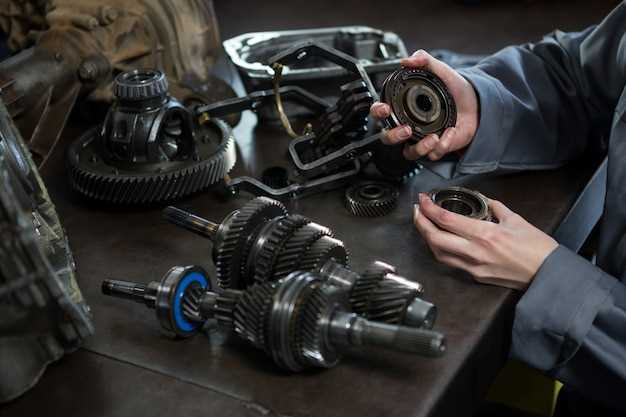
In the quest for better fuel efficiency, optimizing your engine is paramount. Each component of your engine plays a crucial role in determining how effectively it converts fuel into usable energy. By maximizing horsepower while maintaining low fuel consumption, you not only save money but also contribute to a greener environment.
Understanding the relationship between horsepower and fuel economy is essential for any vehicle owner. A well-tuned engine can deliver the performance you desire without the excessive fuel costs that often accompany high-power outputs. This guide will delve into various methods of optimizing your engine, ensuring that you achieve the best balance between power and efficiency.
From routine maintenance to advanced tuning techniques, every aspect of your engine influences its efficiency. By exploring these strategies, you can significantly enhance your vehicle’s performance and fuel savings, making your rides not only smoother but also more economical.
Adjusting Air-Fuel Mixture for Better Combustion
Optimizing the air-fuel mixture is crucial for efficient engine performance and fuel savings. An ideal air-fuel ratio enhances combustion efficiency, leading to increased horsepower and reduced emissions. The standard ratio for gasoline engines is approximately 14.7:1, but adjustments may be necessary depending on the engine’s specific needs and conditions.
Tuning the air-fuel mixture involves several considerations. It’s essential to monitor engine parameters using tools like wideband oxygen sensors, which provide real-time data on the air-fuel ratio. Adjusting the mixture can be achieved through modifications to the fuel injectors, adjusting the carburetor settings, or reprogramming the engine control unit (ECU). Each method requires careful calibration to ensure that the engine operates within its optimal range.
Richening the air-fuel mixture can provide additional power by delivering more fuel during high-demand situations, such as acceleration. However, too much fuel can lead to inefficient combustion, increased emissions, and wasted fuel. Conversely, leaning the mixture can improve fuel economy and promote cleaner combustion, but it risks engine knock and overheating if too lean.
When adjusting for better combustion, consider external factors such as temperature, humidity, and altitude, as they can influence the engine’s air intake. Regular tuning sessions and thorough testing help maintain optimal performance and adapt to changing environmental conditions.
Overall, fine-tuning the air-fuel mixture is a vital step in enhancing engine efficiency, achieving better combustion, and ultimately maximizing fuel savings while retaining the desired horsepower levels.
Tuning Your Engine for Optimal Ignition Timing

Optimal ignition timing is crucial for maximizing horsepower while ensuring fuel efficiency in your engine. Properly tuned ignition timing allows the air-fuel mixture to ignite at the right moment, resulting in better combustion. When the spark occurs too early or too late, it can lead to inefficient burning, increased emissions, and a decrease in power output.
To achieve optimal ignition timing, it is essential to understand the engine’s requirements and operating conditions. Factors such as engine speed, load conditions, and temperature can influence the ideal timing settings. Generally, engines have a specified range where ignition timing is most effective, and deviations from this range can impact performance adversely.
One of the primary methods for tuning ignition timing involves using a timing light. This tool allows you to measure the timing at which the spark plug fires concerning the position of the crankshaft. By adjusting the distributor or ECU, you can fine-tune the timing to maximize horsepower and fuel economy.
Additionally, modern engines often feature advanced engine management systems that automate ignition timing adjustments based on real-time data. These systems can adapt to driving conditions, providing optimal performance across various scenarios. However, tuning these systems for particular driving styles or conditions can yield even greater efficiency and power output.
Another consideration is the quality of the fuel being used. Higher octane fuels can typically withstand more advanced timing settings before knocking occurs. This means that tuning your engine to higher ignition timing can unlock additional horsepower if compatible fuel is used. Always consult your engine specifications and consider conducting a controlled test to find the perfect balance between power and efficiency.
Ultimately, tuning your engine for optimal ignition timing not only enhances horsepower but also contributes to improved fuel savings, making it a valuable aspect of engine performance optimization.
Selecting Performance Parts that Enhance Fuel Efficiency

When aiming to optimize your engine for fuel savings, the selection of performance parts plays a crucial role. It is essential to choose components that not only increase power but also enhance fuel efficiency. One significant aspect is the engine tuning process, where fine adjustments are made to the air-fuel mixture and ignition timing. Proper tuning can dramatically improve combustion efficiency, leading to better fuel economy.
Another critical component to consider is the cold air intake system. A high-quality intake system allows for better airflow to the engine, which can increase power while consuming fuel more efficiently. This improved airflow aids in maintaining optimal engine temperatures, reducing the strain on the engine and further enhancing fuel savings.
Upgrading to performance exhaust systems can also contribute to fuel efficiency. These systems facilitate faster exhaust flow, reducing back pressure and improving engine breathing. A more effective exhaust system enhances power output while simultaneously decreasing fuel consumption.
Fuel injectors play a vital role in ensuring the correct amount of fuel reaches the engine. High-performance injectors are designed to deliver fuel more accurately and efficiently than standard components. This precision reduces wastage, ensuring that only the necessary amount of fuel is consumed for optimal performance.
Lastly, lightweight performance parts, such as aluminum pulleys and flywheels, can also improve fuel efficiency. Reducing the overall weight of the engine components minimizes the energy required to operate the engine, which can lead to savings at the pump. By focusing on these specific parts and the tuning process, you can significantly enhance your engine’s performance and maximize fuel savings.




